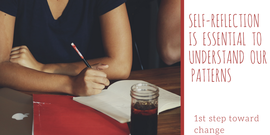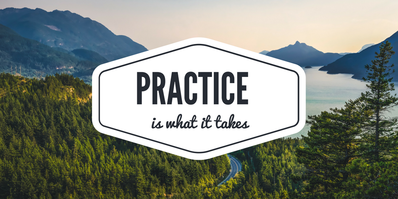WHAT?
The Integral Coaching is recognized as one of the latest and most effective frameworks for coaching in organizations. NASA, Facebook, Intel, Google, Procter & Gamble and many other leading organizations are orienting their leadership and coaching initiatives around the Integral approach. This methodology has been created by New Venture West, one of the world's preeminent coaching institutes.
The basis of the methodology is to work on self-leadership : the ability to be self-aware, to develop new skills and have mutually supportive relationships.
In Integral coaching, we focus more on the client as a Human Being (emotions, on going habits, relationships, social world, how the client represents himself, the energy available to take on change...) than on the issue. The understanding of the client as a whole is tremendously helpful in solving the issue because human being are complex and can't be fragmented. A successful coaching relationship requires that the coach understands how the client is seeing and responding to the situation.
The work addresses four domains in a way unique to each client so that nothing essential is left out: communication and relationship, self-knowledge and self-management, environment, and personal behavior. The basic premise of the work is that everyone’s behavior follows directly from their “structure of interpretation,” which includes their background, education, commitments, ambitions, learning style and more.
The basis of the methodology is to work on self-leadership : the ability to be self-aware, to develop new skills and have mutually supportive relationships.
In Integral coaching, we focus more on the client as a Human Being (emotions, on going habits, relationships, social world, how the client represents himself, the energy available to take on change...) than on the issue. The understanding of the client as a whole is tremendously helpful in solving the issue because human being are complex and can't be fragmented. A successful coaching relationship requires that the coach understands how the client is seeing and responding to the situation.
The work addresses four domains in a way unique to each client so that nothing essential is left out: communication and relationship, self-knowledge and self-management, environment, and personal behavior. The basic premise of the work is that everyone’s behavior follows directly from their “structure of interpretation,” which includes their background, education, commitments, ambitions, learning style and more.
HOW?

To do so, we use 3 powerful Assessment Models to analyze the current situation : assessment of the client's behavior, beliefs, relationships, habits, emotions, thoughts, intentions, images, commitments, language... Also assessment of the skills and competency present in the beginning of the coaching to solve the coaching topic; and what need to be developed / strengthened (in different domains, : cognitive, emotional, relational, integrated, somatic...).
Then we design a personalized Coaching Plan, with the Purpose and precise Intended Outcomes of the coaching; to define how we will measure success. This plan includes self-reflections and self-awareness discoveries, exercises and practices as a way of meeting the intended outcomes.
Self-reflection is a method to discover for ourselves the truth of the situations of our lives. Because being aware our patterns of feelings, thoughts, automatic behavior & emotions is the first necessary step toward change.
We begin to change when we are able to shift how we are making sense of the situation; and it needs self-awareness. We pay attention to certain things, and because we pay attention to certain things we act in certain ways - our actions are consistent with our interpretation.
Exercises are helpful in creating new insights. As you will do the personalized exercises in your coaching plan, you will discover new possibilities, or things you might be lacking of to move forward. This is useful; but not enough to change on the long term.
Then we design a personalized Coaching Plan, with the Purpose and precise Intended Outcomes of the coaching; to define how we will measure success. This plan includes self-reflections and self-awareness discoveries, exercises and practices as a way of meeting the intended outcomes.
Self-reflection is a method to discover for ourselves the truth of the situations of our lives. Because being aware our patterns of feelings, thoughts, automatic behavior & emotions is the first necessary step toward change.
We begin to change when we are able to shift how we are making sense of the situation; and it needs self-awareness. We pay attention to certain things, and because we pay attention to certain things we act in certain ways - our actions are consistent with our interpretation.
Exercises are helpful in creating new insights. As you will do the personalized exercises in your coaching plan, you will discover new possibilities, or things you might be lacking of to move forward. This is useful; but not enough to change on the long term.

That's why Integral Coaching methodology focuses also on practices.
Think about something you do really well. In your current position or in your life (biking? cooking?). How did you get to become competent? Making up our mind to change usually is not enough. Engaging in practices, instead, brings change into being, because it rewires the brain and makes this new habit your "automatic pilot" mode.
Practicing is what it takes to build new capabilities, competencies and new skills.
Every coaching program includes practices to meet the desired outcomes of your coaching plan, so that you have long-term and long lasting results, new habits.
We can guide you toward these new practices, but nobody can make the change happen for you...
All along the coaching journey, we work with the 3 centers of intelligence of our clients : head, emotions and body. In the corporate world, we often focus only in the cognitive center of intelligence. But we all have emotions and lots of embodied habits; and they are essential in any sustainable change. Emotions can be extremely powerful and increasing our Emotional Intelligence is a key competency. (cf Daniel Coleman and Dr Daniel Siegel works).
Think about something you do really well. In your current position or in your life (biking? cooking?). How did you get to become competent? Making up our mind to change usually is not enough. Engaging in practices, instead, brings change into being, because it rewires the brain and makes this new habit your "automatic pilot" mode.
Practicing is what it takes to build new capabilities, competencies and new skills.
Every coaching program includes practices to meet the desired outcomes of your coaching plan, so that you have long-term and long lasting results, new habits.
We can guide you toward these new practices, but nobody can make the change happen for you...
All along the coaching journey, we work with the 3 centers of intelligence of our clients : head, emotions and body. In the corporate world, we often focus only in the cognitive center of intelligence. But we all have emotions and lots of embodied habits; and they are essential in any sustainable change. Emotions can be extremely powerful and increasing our Emotional Intelligence is a key competency. (cf Daniel Coleman and Dr Daniel Siegel works).
